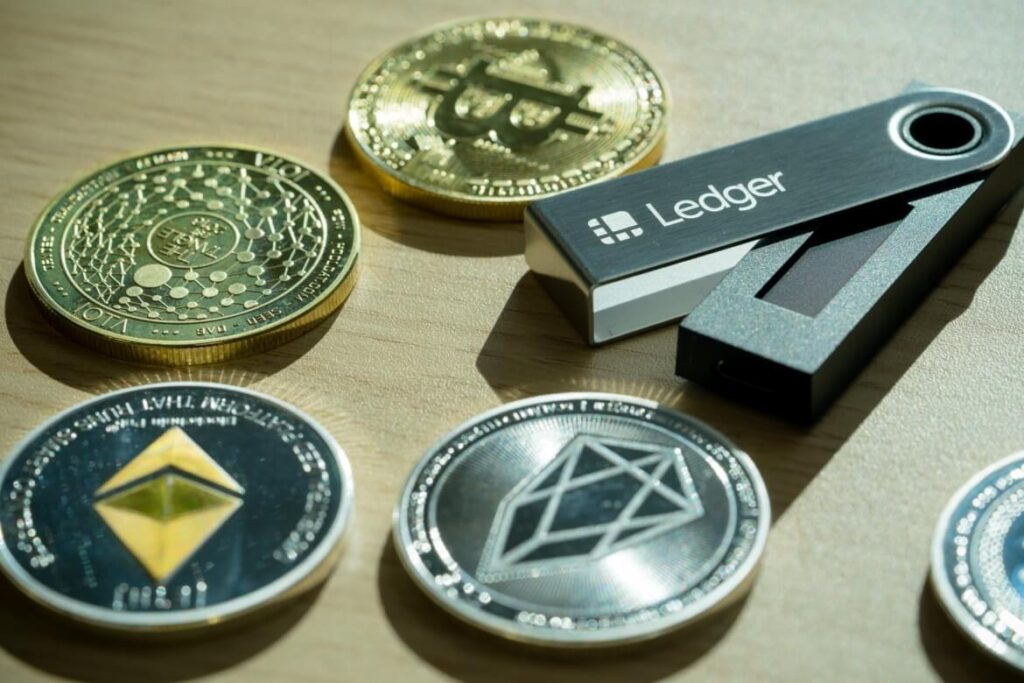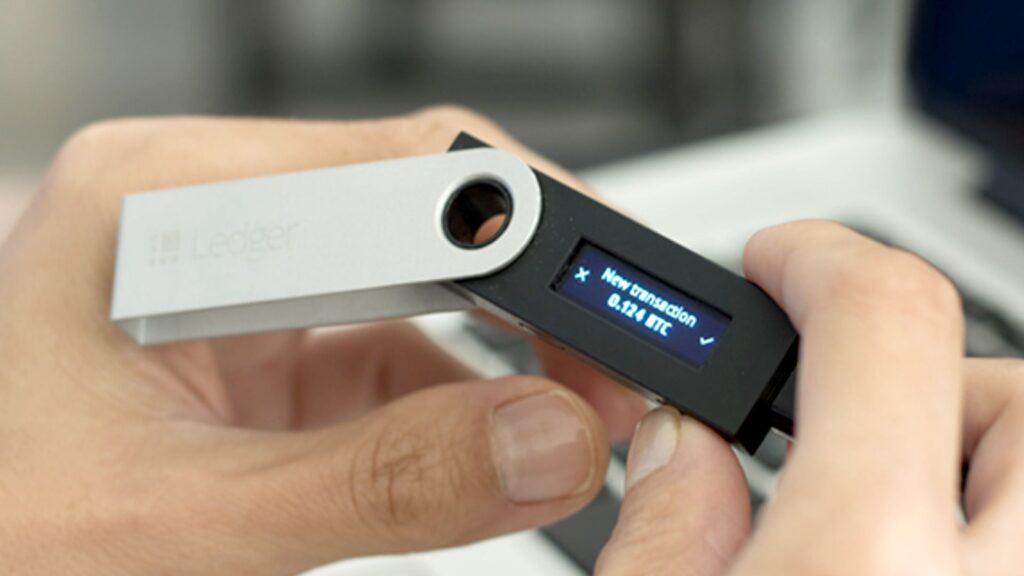In the ever-evolving landscape of digital finance, cryptocurrencies have gained immense popularity, offering a new frontier of financial independence and investment opportunities. With this rise in crypto adoption, securing your digital assets has become paramount. Crypto wallet security is at the forefront of this concern, as it serves as the gateway to your digital holdings. In this comprehensive guide, we will explore the various facets of crypto wallet security and provide you with the knowledge and tools necessary to safeguard your digital assets effectively.

The first section will delve into the different types of crypto wallets available, from hardware wallets that offer robust offline security to software wallets that are more accessible but may require increased vigilance. Understanding these options is essential for making an informed decision about which wallet suits your needs. Following this, we will discuss best practices, such as creating strong passwords and utilizing two-factor authentication, to fortify your wallet’s defenses. In addition to preventative measures, it’s crucial to recognize common security threats like phishing attacks and malware, which are prevalent risks in the crypto space.
As the crypto world continues to evolve, we’ll explore the distinction between cold storage and hot wallets, highlighting their respective advantages and vulnerabilities. We’ll also shed light on the concept of multisignature wallets and the security implications of smart contracts. Lastly, we’ll touch upon the regulatory and legal considerations surrounding crypto, including Know Your Customer (KYC) and Anti-Money Laundering (AML) compliance, as well as taxation and reporting obligations. By the end of this guide, you’ll be well-equipped to navigate the complex terrain of crypto wallet security, ensuring the protection of your digital assets in this exciting and sometimes perilous financial frontier.
Types of Crypto Wallets
Hardware wallets are physical devices specifically designed for the secure storage of cryptocurrencies. They offer an extra layer of security by keeping your private keys offline, making them highly resistant to online threats. Users can access their assets by connecting the hardware wallet to a computer or mobile device when needed, allowing for safe transactions. Hardware wallets are a preferred choice for long-term investors or individuals who prioritize the utmost security for their crypto holdings.
Software wallets are digital applications or programs that can be installed on computers, smartphones, or other devices. They provide a convenient way to manage and access cryptocurrencies, as they are readily available and user-friendly. However, they are susceptible to online vulnerabilities, making them a preferred choice for those who require regular access to their digital assets but should be used with added security measures like strong passwords and two-factor authentication.
Paper wallets are an old-school, yet highly secure method of storing cryptocurrencies. They involve generating a physical paper document that contains the public and private keys necessary for crypto transactions. Since paper wallets are offline, they are immune to online threats like hacking and malware. However, their security relies heavily on the physical document’s safekeeping, as it can be easily lost, damaged, or stolen. Paper wallets are a popular choice for individuals who wish to keep their crypto assets in long-term cold storage and are willing to take the extra precautions to protect the physical document.
Best Practices for Crypto Wallet Security
Creating a robust password or passphrase is the first line of defense in protecting your crypto wallet. A strong password should be lengthy, with a combination of uppercase and lowercase letters, numbers, and special characters. Passphrases are even more secure, consisting of a series of random words or a sentence. Avoid easily guessable information, such as birthdates or common words. It’s essential to use a unique password or passphrase for your crypto wallet and avoid recycling them for other online accounts to prevent potential security breaches.

Enabling two-factor authentication (2FA) adds an additional layer of security to your crypto wallet. It typically involves a secondary verification method, such as receiving a code on your mobile device or using a hardware token, in addition to your password. This extra step makes it significantly harder for unauthorized individuals to access your wallet, even if they manage to obtain your password. Always activate 2FA whenever possible to enhance the security of your wallet.
Keeping your wallet software up-to-date is vital to maintain the highest level of security. Developers often release updates that patch vulnerabilities and enhance the wallet’s defenses against new threats. Neglecting to update your software could leave your wallet exposed to known security flaws. Regularly check for and install these updates to ensure that your wallet remains protected against emerging threats.
Accidents happen, and you might lose access to your wallet due to device damage, theft, or other unforeseen events. To mitigate this risk, create a backup of your wallet’s private keys and store them in a safe and separate location. Additionally, establish a clear recovery plan in case you ever need to regain access to your wallet. This may involve using a recovery seed or mnemonic phrase provided by your wallet software. Having a well-thought-out backup and recovery strategy is crucial for safeguarding your crypto assets in the event of unexpected circumstances.
Recognizing Common Security Threats
Phishing attacks are prevalent in the world of cryptocurrencies, and they involve deceptive attempts to trick individuals into revealing sensitive information like their wallet’s private keys or login credentials. Typically, attackers use fraudulent websites, emails, or messages that impersonate legitimate services to lure victims. These deceptive communications often urge recipients to click on malicious links or provide confidential information. Recognizing the signs of phishing is crucial, and users should exercise caution, verifying the legitimacy of sources and never sharing sensitive data through unsolicited messages or unfamiliar websites.
Malware, including keyloggers, poses a significant threat to crypto wallet security. Malicious software can infiltrate your computer or mobile device and record keystrokes, allowing attackers to capture your wallet passwords and private keys. To guard against malware, it’s essential to maintain updated antivirus and anti-malware software. Avoid downloading files or clicking on suspicious links and be cautious when installing software or browser extensions from unverified sources. Regularly scanning your devices for malware can help prevent these security breaches.
Social engineering is a psychological manipulation technique used by malicious actors to gain unauthorized access to your crypto wallet. Attackers might attempt to deceive you into revealing sensitive information or performing actions that compromise your security. These manipulative tactics can take various forms, such as impersonating trusted contacts, engaging in persuasive conversations, or leveraging personal information to build trust. Staying vigilant and practicing skepticism when communicating with unknown or unverified sources is essential to guard against social engineering attempts. Verify the identity of anyone requesting access to your wallet or sensitive information, and never share private keys or login credentials under pressure or without due diligence.
Cold Storage vs. Hot Wallets
Cold storage is a method of safeguarding your cryptocurrency assets by keeping them offline. The primary advantage of cold storage is its high level of security. Private keys for your digital assets are stored in physical devices, such as hardware wallets or paper wallets, making them impervious to online threats like hacking or malware. This approach is ideal for long-term investors who want to protect their assets from cyberattacks and theft. However, cold storage is less convenient for daily transactions, as accessing your funds may require physical access to the device, making it less suitable for those who need quick and regular access to their cryptocurrencies. Furthermore, if the physical storage is lost or damaged, recovering the assets can be challenging, emphasizing the importance of secure backup and recovery procedures.

Hot wallets, in contrast, are digital wallets that are connected to the internet, making them easily accessible for everyday use. The primary advantage of hot wallets is their convenience, allowing users to conduct quick and frequent transactions. They are suitable for traders and individuals who actively use their cryptocurrencies for various purposes. However, hot wallets are more susceptible to online threats, including hacking, phishing attacks, and malware. Users must implement robust security measures, such as strong passwords and two-factor authentication, to protect their assets. Additionally, hot wallets may require regular software updates to patch vulnerabilities. Balancing the accessibility of hot wallets with the need for heightened security practices is crucial for users who opt for this type of wallet.
Multisignature Wallets and Smart Contracts
Multisignature wallets (multisig wallets) offer an innovative approach to enhancing crypto wallet security. They require multiple private keys to authorize transactions, typically involving more than one party. This added layer of security makes it significantly more challenging for unauthorized individuals to access or move your cryptocurrency funds. Multisig wallets are particularly beneficial for businesses, partnerships, or any scenario where multiple stakeholders have an interest in managing the wallet’s assets. They reduce the risk of a single point of failure and ensure that no single party can unilaterally execute transactions, providing a higher level of control and security.
Smart contracts, while revolutionary in their potential, also introduce unique security considerations. These self-executing contracts are coded on blockchain platforms, and their execution depends on predefined conditions. Security implications arise from potential vulnerabilities in the code, which can be exploited by malicious actors. Errors in the code may lead to unintended consequences, including the loss of funds or the exposure of sensitive data. Regular auditing of smart contracts and meticulous code review is essential to mitigate these risks. Additionally, the immutable nature of blockchain can make it challenging to rectify mistakes once a smart contract is deployed, emphasizing the importance of thorough testing and due diligence in their creation and execution. As the crypto ecosystem continues to evolve, understanding both the advantages and potential pitfalls of smart contracts is vital for users seeking to harness their capabilities securely.
Regulatory and Legal Considerations
In the world of cryptocurrencies, regulatory and legal considerations play a significant role in shaping the landscape. Two critical aspects are Know Your Customer (KYC) and Anti-Money Laundering (AML) compliance. KYC regulations require cryptocurrency exchanges and financial institutions to verify the identities of their users, helping to prevent fraud, money laundering, and the financing of illicit activities. Users may encounter these requirements when onboarding to exchanges or services, as they often involve providing personal information and identity verification. AML regulations, on the other hand, aim to detect and report suspicious financial activities, making it crucial for cryptocurrency service providers to establish robust AML policies and procedures. Understanding and complying with these regulations is essential for both individuals and entities operating in the crypto space, as non-compliance can lead to legal consequences and the freezing of assets.
Cryptocurrency taxation is an area of increasing concern for individuals and businesses involved in the crypto market. Tax authorities in various jurisdictions are developing guidelines to ensure that crypto transactions are appropriately taxed. Depending on your location, you may be required to report cryptocurrency holdings, capital gains, and losses for tax purposes. This includes tracking your cryptocurrency transactions, maintaining records, and accurately reporting them on tax returns. Failing to adhere to tax obligations can result in fines, penalties, or even legal action. Therefore, it is vital to stay informed about cryptocurrency taxation regulations in your region and seek professional advice if needed to ensure compliance and avoid legal ramifications.
Conclusion
In the dynamic world of cryptocurrencies, safeguarding your digital assets is a fundamental concern. This guide has explored the multifaceted realm of crypto wallet security, providing comprehensive insights into the types of wallets available, best practices for fortifying your defenses, recognizing common security threats, and understanding the choice between cold storage and hot wallets. We’ve also touched upon the benefits and considerations of multisignature wallets and the security implications of smart contracts. Furthermore, we emphasized the critical regulatory and legal considerations surrounding KYC and AML compliance, as well as taxation and reporting obligations. By embracing the knowledge and recommendations outlined in this guide, you are better equipped to navigate the crypto landscape and protect your digital assets effectively.
Crypto wallet security is an ever-evolving field, and the risks associated with digital assets continue to shift with the changing landscape. As you venture into the world of cryptocurrencies or seek to enhance your existing security measures, staying informed and vigilant is paramount. By practicing strong password and 2FA methods, understanding the threat landscape, and making informed choices regarding wallet types and security features, you can significantly reduce the risk of losing your assets to theft or online threats. Furthermore, recognizing the importance of regulatory compliance and taxation obligations is crucial for maintaining a legal and secure presence in the crypto sphere.
Ultimately, as you journey through the realm of crypto wallet security, it’s important to find a balance between convenience and protection that aligns with your specific needs and risk tolerance. By remaining proactive, informed, and adaptable to the evolving crypto environment, you can safeguard your digital assets and navigate the exciting and sometimes unpredictable world of cryptocurrencies with confidence and security.





Add comment